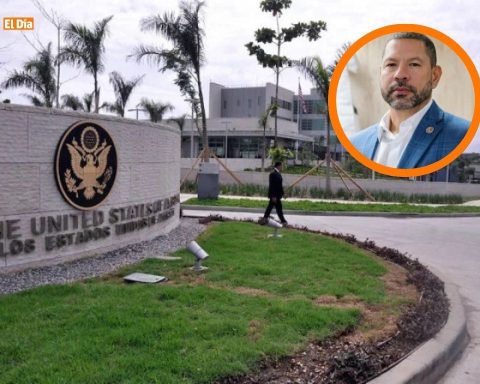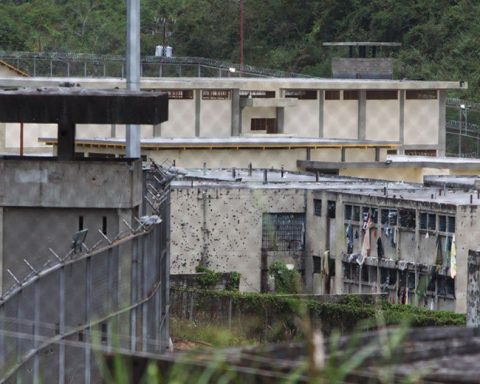C
ataluña has new president, although it is forgivable not to have noticed, since all the attention was on Thursday on Carles Puigdemont, the former pro-independence president who, after seven years of exile, showed up in Barcelona defying the arrest warrant against him. After that, he disappeared.
He vanished, making the Catalan police look ridiculous and leaving the judges in the Supreme Court who have been yearning to get their hands on him for years with honey on their lips. So much so that they have openly rebelled against the Amnesty Law approved by Congress, maintaining an arrest warrant for embezzlement that totally contravenes the letter and spirit of the law of the Legislative Power. lawfare, In Spain, it did not start with Pedro Sánchez.
As a magic trick, Puigdemont’s action was impeccable. Its political utility, however, is not clear. Because while people were wondering where the exiled leader was, inside the Catalan Parliament they were electing the first non-independence president in the last five decades, as a consequence of the loss of the separatist majority in the May elections. This is Salvador Illa, candidate of the PSC, the Catalan branch of Sánchez’s PSOE.
There are many who have wanted to see in this investiture the final nail in the coffin of the separatist process that, in the autumn of 2017, put the foundations of the Spanish State in jeopardy with a self-determination referendum held in a disobedient manner and in the face of the violent action of the Spanish police. Is what was happening in Catalonia over, then? Perhaps not everything is so easy, to begin with, because it is counterproductive to think of history in watertight compartments. Processes do not end, they are transformed.
It is therefore more appropriate to speak of the end of a cycle, of a change of phase like the one that also occurred after the 2017 referendum, although it is less recognised. That meeting marked the end of the ascendant phase of the independence struggle, which has since been losing its edge, weighed down by Spanish repression, first of all – with the imprisonment and exile of numerous leaders – but also by internal struggles within Catalan nationalism. In fact, it is tempting to place the causes of Puigdemont’s fleeting return within this struggle.
Let us explain. Illa has managed to be elected president thanks to the votes of ERC, the main progressive party in the independence camp. To do so, they have agreed on a new financing system that will stop fiscally mistreating Catalonia, a historic demand. This new arithmetic, which for the first time in a dozen years gives way to governability agreements between Spanish and Catalan parties, opens a phase in which Junts (Puigdemont’s party, heir to the conservative CiU) has seen the opportunity to frontally criticize ERC for having elected a Spanish president. It thus seeks to impose itself in the merciless struggle that both parties maintain for hegemony within the Catalan camp.
Puigdemont’s fleeting return underlines the anti-democratic abnormality of his persecution by a judiciary in open rebellion not only against the Catalans, but also against Pedro Sánchez’s government. But instead of trying to sharpen the Spanish contradictions – which show that, after all, the problem with democracy is not with the Catalans or the Basques, but with the Spanish themselves – Junts has preferred to point the finger at both Illa and ERC, which they have even held partially responsible for Puigdemont’s potential arrest. In the game of mus, this is called playing small.
In any case, we still have two questions to answer. First: is the independence bid over? The Catalan national fact is not going to disappear, and the leap that thousands of autonomists have made to the independence movement in the last two decades cannot be reversed. Another thing is that this desire loses intensity while waiting for better conditions and larger majorities. Everything will depend, to a large extent, on the degree of compliance with the investiture agreement by the PSOE. If a new financing model is put in place and Catalonia is allowed to collect and manage taxes, it will be normal for things to calm down in the coming years. Not in vain, Catalanism would have achieved one of its historical demands. If the deal is not fulfilled, the conditions will continue to be given so that, when the situation helps, everything will speed up again.
Second: what consequences does the opening of this new phase in Madrid have? Nowhere is it written that the victory of the PSC will be that of the PSOE, which now has to deal with the rebellion of its own territorial leaders, who denounce preferential treatment of Catalonia. In addition, Sánchez needs the votes of Junts to get through the legislature, and it does not seem that Puigdemont’s people are at their most conciliatory. The Catalan investiture, therefore, announces new turbulence in the already difficult balance of Madrid.
















